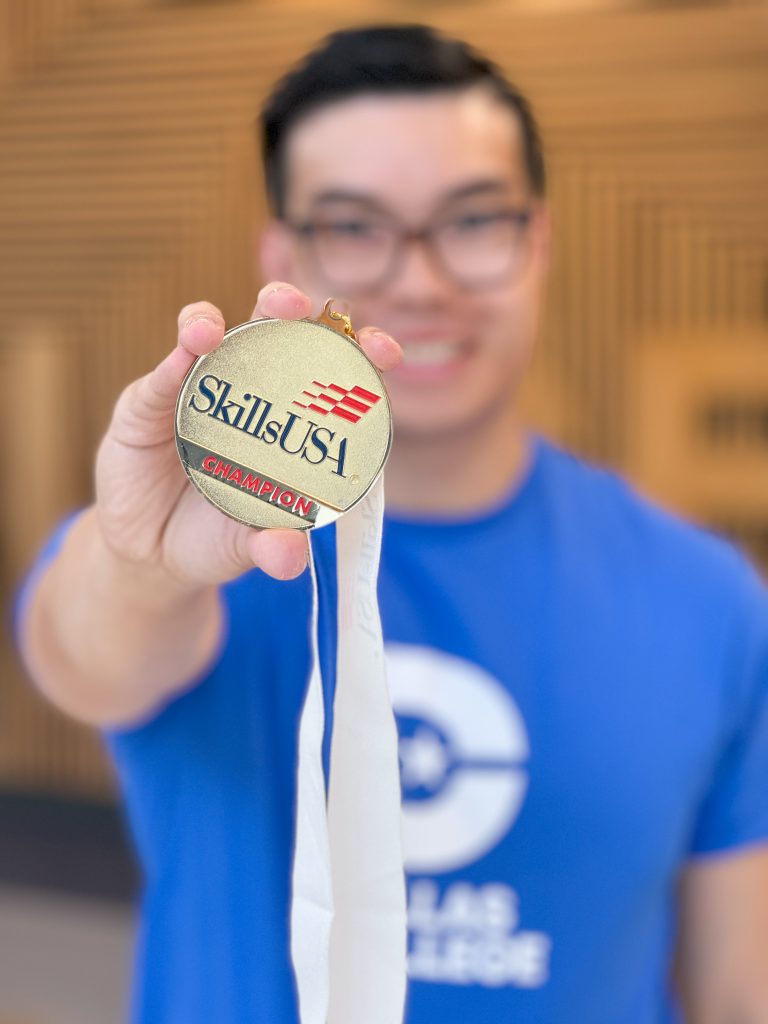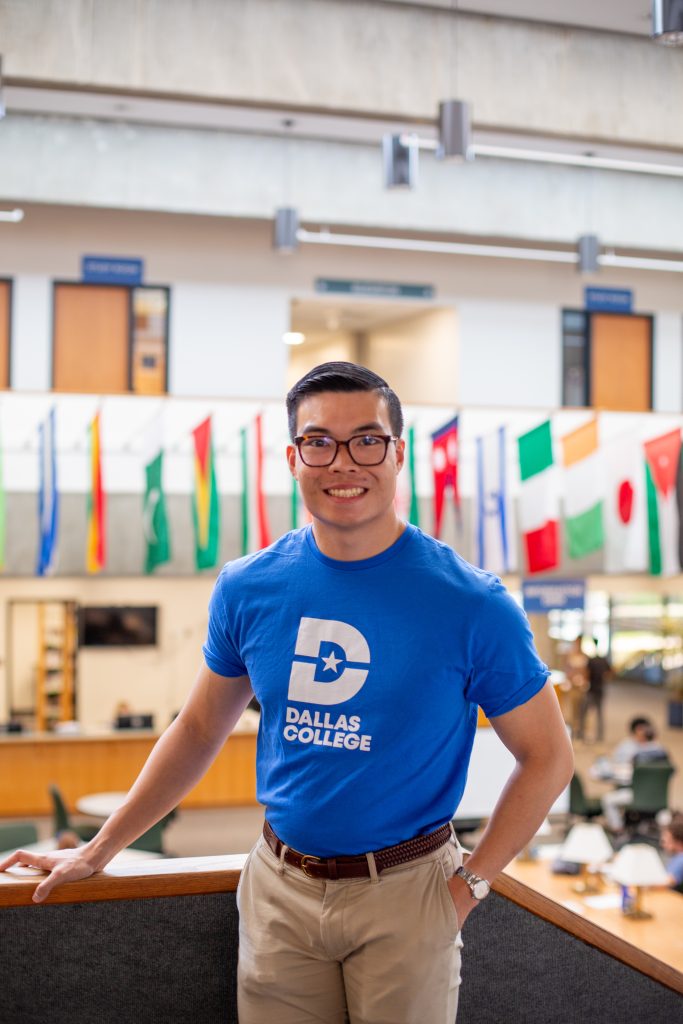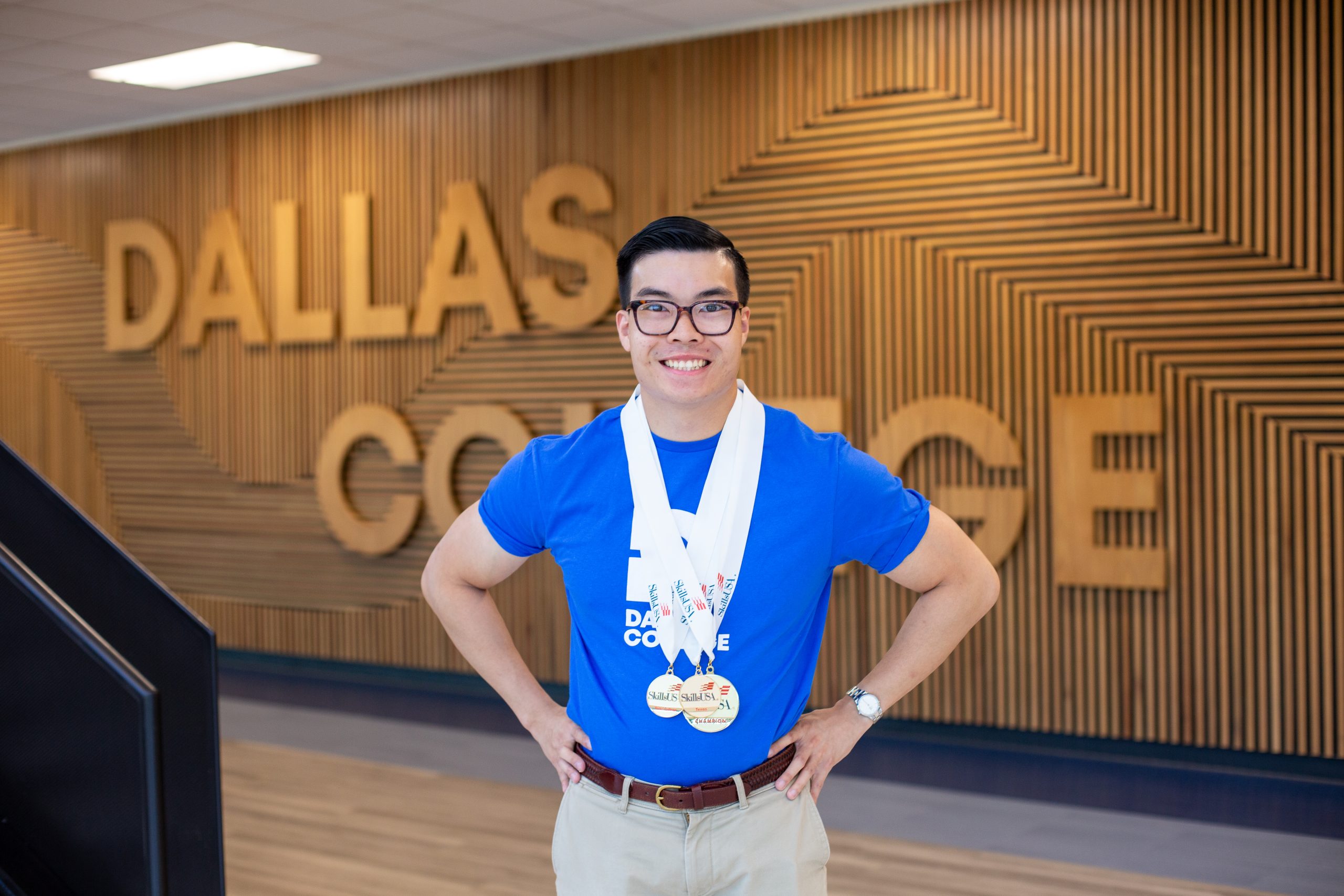Last updated on February 3, 2025
What made you want to go to college?
I wanted to make something more for myself. My parents never finished their education, and I didn’t want to end up in a low-paying job. I saw the hardship that they were going through, and I wanted to change my future for the better, where I didn’t have to rely on anyone else.
How did low expectations from your family impact you?
It took a toll on me. I was diagnosed with autism and was always told I should be ‘normal’ like other kids. My family didn’t think I would make it. After high school, I struggled with depression. I was living afraid of many things because people were being rude and judgmental toward me. But during COVID, two best friends helped me find my confidence and get back on track. Without them, I wouldn’t be here today.
How has autism impacted your college experience?
It’s been challenging. In high school, I was put in special education classes, but I didn’t understand why. I thought I was ‘normal’ and just struggled more than others. Learning has always been difficult for me because I’m a slow learner. Social interactions are also tough because I don’t always connect easily with others, and it can be very difficult for someone to understand you. It’s been a journey to adapt and learn in ways that work for me.
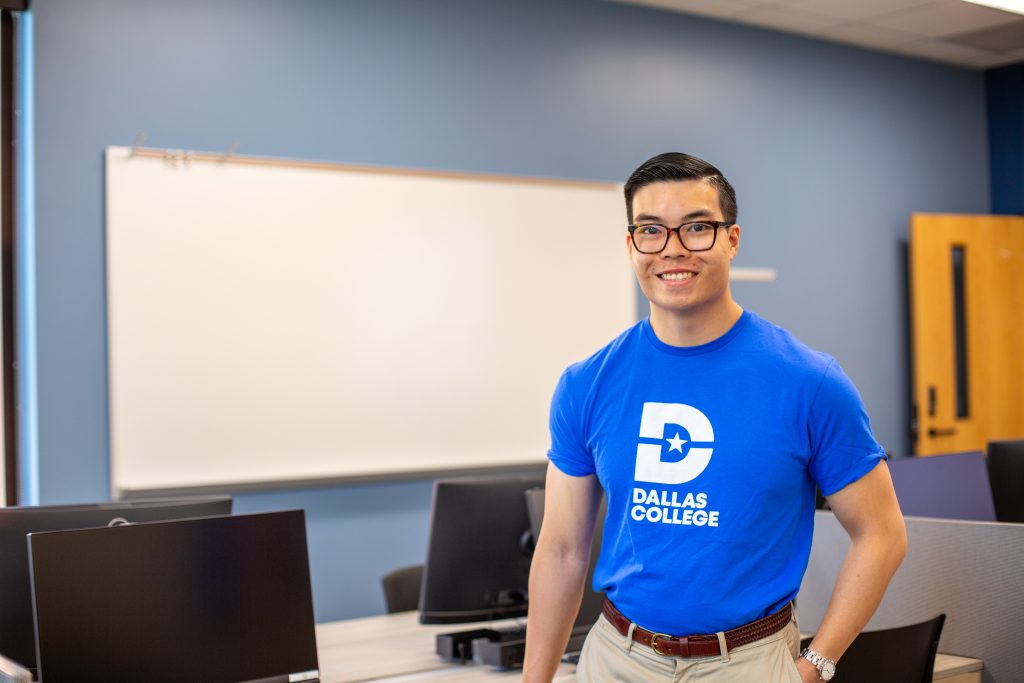
What advice would you give to others about understanding autism?
Autism is different for everyone, but for me, it’s like being on a different wavelength. I might take longer to process things, but it doesn’t mean I’m not capable. Society sometimes struggles to accept that, but more people are becoming aware. I always tell others with autism to be proud of who they are. It’s a tough battle, but the more open we are, the more people will see our strengths. Learning differently doesn’t mean we can’t succeed.
How has the college’s Accessibility Services supported you?
They’ve been a huge help. They give me extra time on tests, allow for extensions on assignments, and help me find the right classes and professors who understand my needs. One person I really want to mention is Breina Webster—she’s been incredibly supportive. She was the very first person who I met at Dallas College, and she’s helped me in so many ways, from registering for classes to listening and supporting me during my first semester struggles.
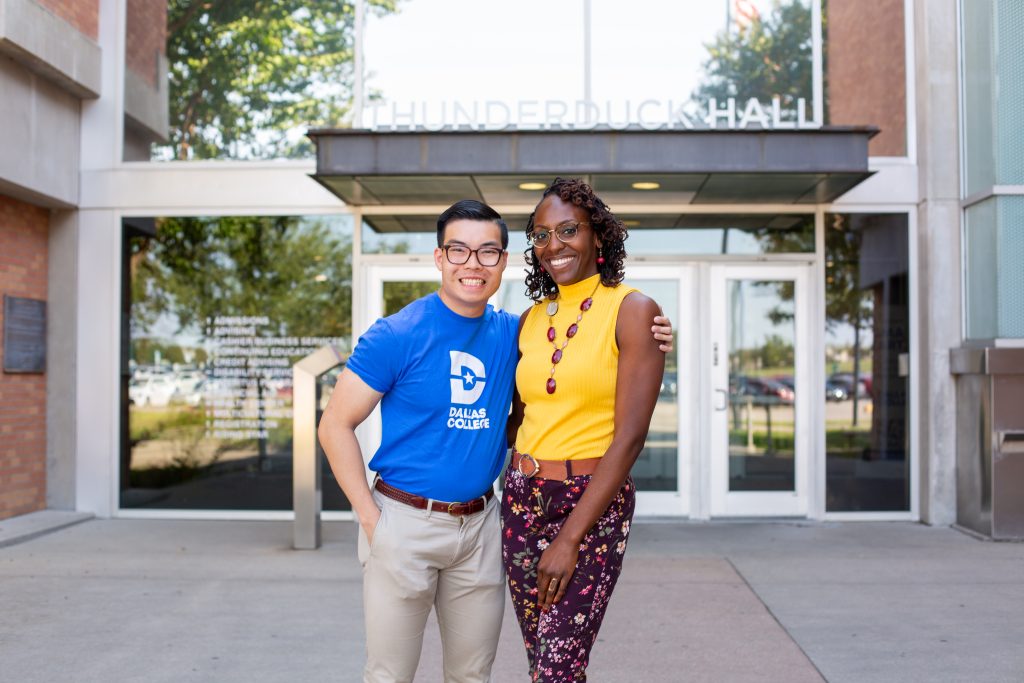
What role has SkillsUSA played in your college experience?
SkillsUSA has been one of my greatest experiences, plus it was my first time traveling as a student. Competing and winning the gold medal in the Community Action Project was life changing. It motivated me to get more involved in leadership activities and build confidence. For our winning project, it was focused on getting the younger generation motivated and registered to vote. We got over 1,000 people to vote, and the judges were blown away by the success of our project.
What legacy do you want to leave behind?
I want people to remember the good side of me and what I achieved despite my struggles. My legacy is about inspiring others to push through tough times. I want people to think, ‘Harrison didn’t give up. He encouraged others to believe in themselves and pursue their dreams.’ No matter how tough things get, you can make a positive impact.
